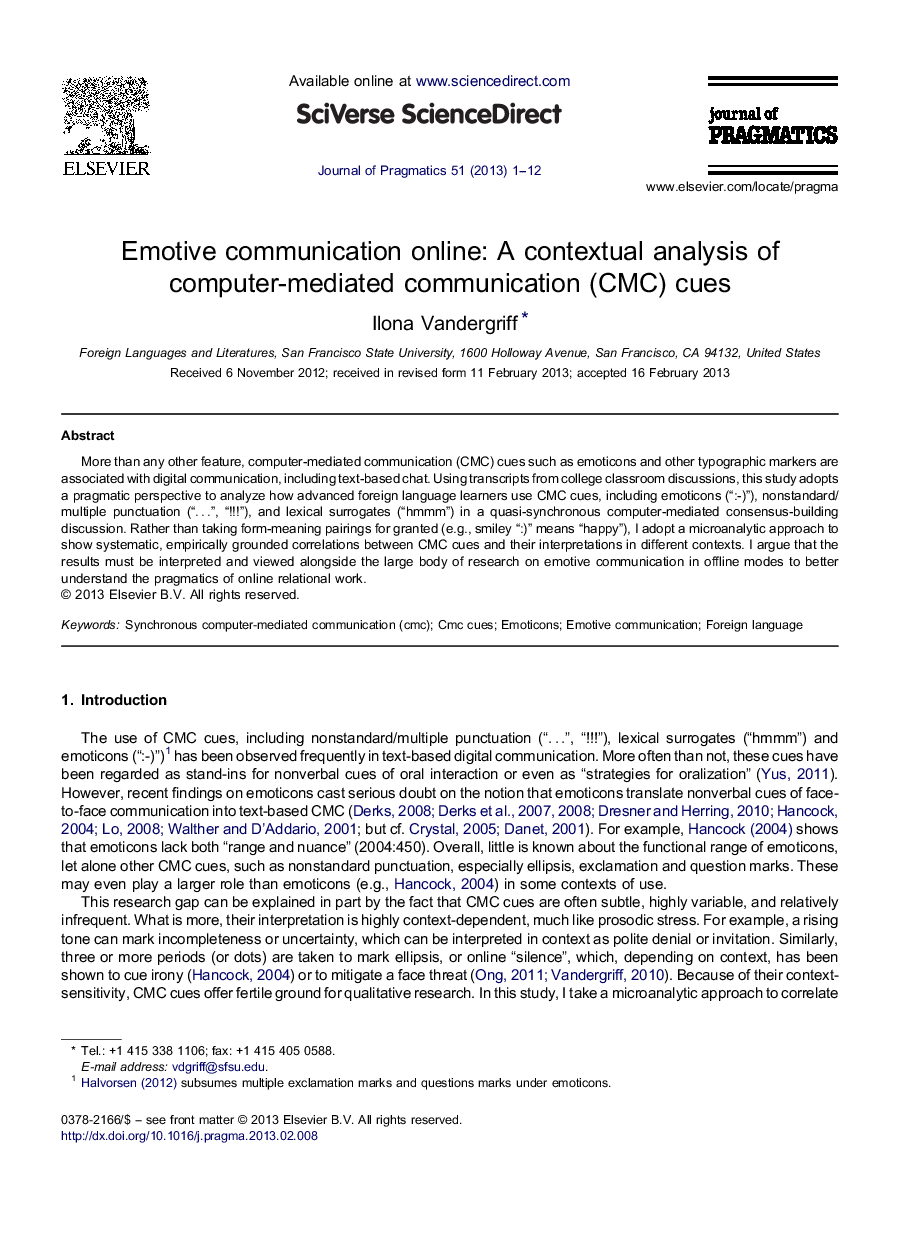| کد مقاله | کد نشریه | سال انتشار | مقاله انگلیسی | نسخه تمام متن |
|---|---|---|---|---|
| 932892 | 1474748 | 2013 | 12 صفحه PDF | دانلود رایگان |

More than any other feature, computer-mediated communication (CMC) cues such as emoticons and other typographic markers are associated with digital communication, including text-based chat. Using transcripts from college classroom discussions, this study adopts a pragmatic perspective to analyze how advanced foreign language learners use CMC cues, including emoticons (“:-)”), nonstandard/multiple punctuation (“…”, “!!!”), and lexical surrogates (“hmmm”) in a quasi-synchronous computer-mediated consensus-building discussion. Rather than taking form-meaning pairings for granted (e.g., smiley “:)” means “happy”), I adopt a microanalytic approach to show systematic, empirically grounded correlations between CMC cues and their interpretations in different contexts. I argue that the results must be interpreted and viewed alongside the large body of research on emotive communication in offline modes to better understand the pragmatics of online relational work.
► I analyze CMC cues as emotive communication in language learner chat.
► CMC cues include markers like emoticons, punctuation marks, and lexical surrogates.
► CMC cues serve to maintain, enhance or challenge relationships.
► CMC cues are multifunctional and can only be interpreted in context.
► Findings support call for qualitative analyses of CMC cues.
Journal: Journal of Pragmatics - Volume 51, May 2013, Pages 1–12